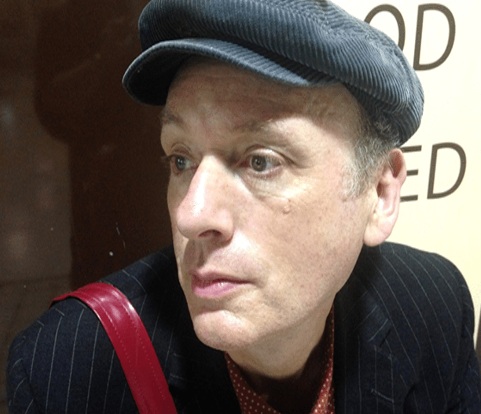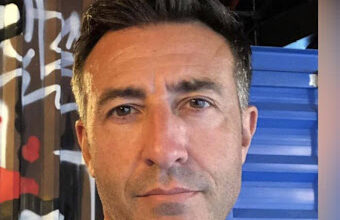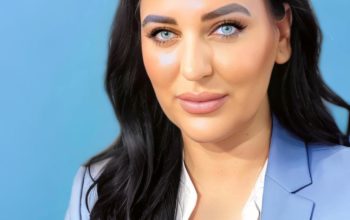Simon Wells has written on film and music for numerous magazines and newspapers including The Guardian; The Times and The Independent. He is a regular contributor to Empire, Record Collector, Hotdog, TV Zone, Watch, Total Film, and The Beatles’ Book, the group’s official magazine In addition to his writing credits, Simon has researched projects for the likes of the BBC, Channel Four, C5, Discovery Channel and Virgin Media, as well as broadcasting live on LBC, ITN and the BBC on film and music.
In 2001, Simon co-wrote “Your Face Here- British Cult Movies Since the 1960” which was published by Fourth Estate/Harper-Collins. The book was a critical success, entering the BBC’s “Top Ten Film Books of the Year“ list. During the summer of 2003, Simon was asked to curate a month-long season of classic 1960’s cult movies at the National Film Theatre in London Simon is the author of the hugely successful “The Beatles: 365 Days“ published by Abrams/Time Warner, which to date has sold over 100,000 copies worldwide. Simon has also written “The Beatles in Japan,“ published by Tascam in June 2006, and “The Rolling Stones: 365 Days“ published in November 2006. In July 2007, Simon wrote the screenplay for the documentary “Don’t Knock Yourself Out,“ a visual history of “The Prisoner“ television series. 2009 saw the release of “Coming Down Fast”, an exhaustive account of the Charles Manson “Family” saga published by Hodder & Stoughton. 2011 saw the publication by Omnibus Press of “Butterfly On A Wheel” the story of the infamous drugs trial of Keith Richards and Mick Jagger in 1967. 2012 saw Simon writing the definitive story of Quadrophenia – The Who’s classic cult film and a project in collaboration with The Rolling Stones published by Taschen. Simon’s first novel, “The Tripping Horse” was published in 2013 through Wholepoint Publications. 2015 saw the publication “Eight Arms To Hold You“ – a celebration of The Beatles film Help! 2017 sees the release of “In Echoed Steps: The Jam and the Spirit of Albion”, an exploration of the music and poetry of Paul Weller. 2019 sees the publication of the first biography of Anita Pallenberg, a retrospective of the classic cult magazine “London Life” and a new book on the Making of Quadrophenia.
When did you start writing and what do you think attracted you to poetry?
I started – probably like most novice writers – as a young child. Nothing too groundbreaking or out of the ordinary, but it did give me an outlet to express myself that no other art form could at the time (I think a lot of young people share that feeling). For me, writing poetry had something unique – and in its way – it allowed for a greater expression, certainly more than conversation – especially when attempting to say something concisely appeared impossible. It certainly meant a lot to me at the time. I wish I’d kept some of my early poems to be honest, but I do recall many hours spent under the covers with a torch!
What motivated you to go on to focus on a career in writing?
I read a lot – and I think at some point I felt I had something to say – especially about the things I adore; film, music etc. So I ended falling into writing quite late. Nonetheless, the ideas, thoughts and concepts had been bubbling away for many, many years. But I had been writing poetry since a small child. It was only recently that I wanted to get it out there.
How do you think you’ve evolved as a writer over the years?
It’s probably hard to say – modesty permits, but I’d like to think I‘ve become more thoughtful and more observant, but not to the exclusion to the innocence that I want to keep. Marrying the two can be difficult at times, but the great poets and writers appear to do it. That’s my goal.
Which poets do you admire?
From across the board really. Classics like Keats, Shelley and (especially) William Blake – despite their vintage, they are visionaries and they translate over the centuries and to countless generations. More modern, I’d definitely say the “Liverpool Poets” – especially Adrian Henri – a real favourite of mine. I really love Benjamin Zephaniah too. I take a lot of inspiration from music lyrics as well – much of it (to me) is poetry anyway – Dylan, Lennon, Ray Davies, Paul Weller, Nick Drake – they are poets in their own way.
What inspires you?
To me everything in life to me is poetry. People, places, happenings; they all house a beauty. Tragedy too can be an inspiration to the poet – but for me the pure form has to be without judgement or opinion. The observant and non-judgemental eye can paint a far truer picture.
What process do you go through to write a poem?
It starts with a spark; a germ of an idea – or an unusual name or place. I then get fairly obsessed with it and it starts to grow in my mind. So from then on it either happens very quickly or you really have to work at it (and often, they are the ones that don’t work). But I always aim to try and finish at least a first edit of a poem form in one go. It may be flawed in some way, but if you can capture the essence, then you have the basis for something. It may mean going back to it several times to finish it off, but if the spirit is in there, it will endure careful pruning.
Do you think poetry has a purpose? Is there something particular that good poetry ought to do?
I think the brilliance of the poetic form is that it can compress an emotion into a few words. That’s its strength. Probably like most writers, I am to move people, enlighten them and possibly amuse them too. If you can do that in a few lines, that’s really special.
https://www.youtube.com/watch?v=atEemsyt2FU
What’s the best experience you’ve gained through your writing?
Undoubtedly the reaction I get from people when they’ve read something that has interested, moved or resonated with them. That’s the pay-off. It’s lonely pursuit writing, and you never really know if what you are doing is going to achieve anything – but feedback – whether good or bad – is vital – especially good feedback!
Looking at your own work, which poems most inspire you?
I think something like “The Saturday Girl”, which started life as a song but was more suited to a poem – that for me was something I felt really proud of and confident of too. Sometimes (and despite your best efforts) one can go a little off-piste and you read it later and think, “What was I on there?!” but there are others which really strike a chord with your own emotions – “The Saturday Girl” being one of them.
Whose work would you recommend with regard to contemporary poetry?
I don’t know if you can regard him as contemporary, but I was (and still am) in awe of John Betjeman’s work. There’s something so English about his laconic but hugely unique view of the quirkiness of English life, he is an absolute original. I am still moved immensely by Roger Mcgough. While he was one of the so-called “Liverpool Poets” his contemporary work is still brilliant, timeless and at times sad and funny. I often hope he will become Poet Laureate one day.
What are you reading at the moment?
“Joinedupwriting” by Roger Mcgough and “Jerusalem!: The Real Life of William Blake” by Tobius Churton.
Do you have a particular process or place where you like to write?
I do like the quiet – so usually late at night in my flat. I keep late hours so there’s no noise here – no phones or people dropping by. It’s a good way for me to work. I also live in the country, so it’s doubly quiet.
Do your poems start life in longhand, notes, or is it straight to the computer?
I seem to collect scraps of paper with phrases I’ve heard of dreamt up during the day – people come out with so many funny or profound lines – they have to be captured one way or another. Also just happenings and things I see – even mundane – but they can make an impression. Later when I’m at home the transfer to computer starts – and that’s where the work really begins. But they all start off as notes.
Have you ever experienced writer’s block or not knowing what to write?
Not really – I write all the time, so I’ve – thank the Lord – never had that problem. I think writing is a bit like exercising, you have to keep doing it.
So, this being your second body of poetry, where do you see yourself going next?
I want to write as many books of poetry as I can during my lifetime. I love the process. Actually, Lewis the publisher and I have been talking about a spoken word album which would be great fun to do. I’ve put together a few poems with a visual background on YouTube, and that’s a great way of getting one’s work out there easily and imaginatively.
Lastly, what advice would you give to an aspiring poet
Just write about how you feel. The golden rule for me is always: “Don’t worry if it doesn’t rhyme – it doesn’t have to!” Just write it, express yourself and get it out there. The world is a better place for knowing your work!




